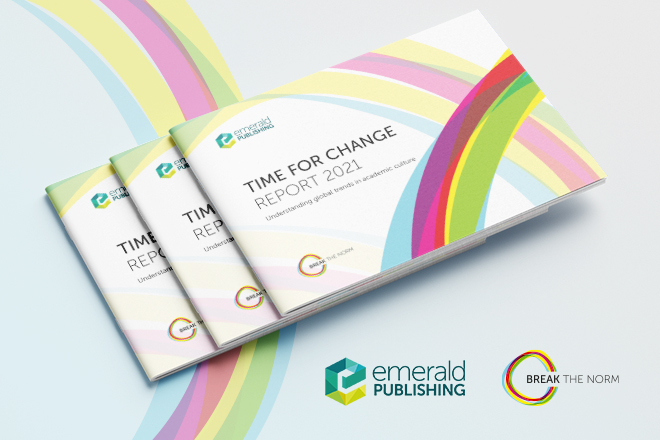Within the academy, the pandemic has offered some groups, better work/life balance, greater opportunities for collaboration and attendance to virtual conferences/webinars and access to funding.
For others, however, it has done the reverse, deepening disparities within the research system and setting progress back decades.
The gender gap within academia is one area that has notably widened during the pandemic. Lockdowns and closures of schools have put women under more pressure than ever to balance childcare, household responsibilities and work. The clash of work and home life has negatively impacted women’s productivity, capacity for research activities and ability to publish and produce research outputs.
On this page
In the report
- Widening inequalities [this page]
- Research evaluation
- Academic culture
- Openness & transparency
- Role of the publisher
Introduction
Unsurprisingly, in this year’s survey almost twice as many female (40%) than male (22%) academics, agree that COVID-19 has made the gender gap even wider in their institution/part of the world. One female academic adds:
...the gender divide is getting much, much worse too. COVID-19 massively impacted on women and in particular, mothers, and nobody cares except those of us who are still trying to combat the rampant inequalities in this area. It’s jobs for the boys all over again. The gender pay gap widens, women are pushed aside and leapt over and never get the recognition they deserve
The pandemic has clearly set back women’s progress, but changes to ways of working, teaching and conducting research have impacted academics in general. Most academics (66%) agree or strongly agree that they now have less time for research because they need to prepare for and deliver online or hybrid teaching. Highest agreement comes from those in Australasia (74%) and N&WE (70%). In addition, over half (53%) believe their research will take a hit because there are now less opportunities to travel and collaborate. Researchers in Asia and ME&NA worry most about this issue (64%).
Another area that more than half (52%) of academics feel strongly about is the impact of COVID-19 on underfunded research areas. Agreement is strongest among academics in Sub Saharan Africa (62%), India (61%) and ME&NA (61%). The digital divide isn’t a universal issue, but significant for those in Asia (47%), India (46%) Latin America (45%) and ME&NA (45%).
Alongside pandemic-related issues, we asked participants their attitudes to a range of topical issues covering funding, open access, and citation-based systems. Most agree (64%) that publishers should do more to support research in underfunded areas. Agreement is particularly high in SSA (76%), Asia (70%) and ME&NA (71%). Another serious issue for 60% of academics is that citation-based systems unfairly disadvantage those in low- or middle-income countries (LMIC). This is a significant problem for those in Latin America (73%) and India (70%).
These findings suggest that inequalities in academic research are widening and could be most detrimental for groups such as women and those living in LMIC. If this is true, how should the research community respond and are we willing to make the necessary changes?
Overcoming the barriers to change in academia
Harriet Bell, Marketing Director at Emerald Publishing, reflects on Emerald’s Time for change report 2021 including the barriers to change and what Emerald is doing to help overcome these.
Does the academy really want change?
For the last three years, we’ve been monitoring the research community’s attitudes towards a range of potential changes, including traditional incentives, research evaluation measures and publishing. In response to the biggest shake-up to society in decades, we thought we would go further by asking participants for their specific thoughts around change.
Asked, ‘Does the academy really want change’, more than a 1,000 academics weighed in. There are mixed views on the issue, but the majority believe that the academy is reluctant to change and probably won’t unless certain authorities make it happen.
Here are some of the responses
|
Beneficiaries don't want change |
'No, I don’t think so. The academia is full of people who have excelled in publishing journal articles. They are least bothered about quality and impact of the research. They will not change until replaced by a group of researchers who are more interested in doing research than publishing journal articles.' Male, faculty, 6-10 years post PhD, India |
|
Change is expensive |
'I’m not sure the academy wants to change as existing metrics are quite simple to use and redesigning a fairer system involves change costs.' Female, faculty / teaching, 20+ years post PhD, Italy |
|
Start with funding |
'Academic institutions are driven by financial imperatives. Unless funding of HE changes, there will be little or no appetite for change.' Male, faculty / teaching, 11-15 years post PhD, UK |
|
Overhaul evaluation |
'Until there is a change to way that research is funded and evaluated it can’t change.' Male, faculty / teaching, 16-19 years post PhD, Australia |
|
Boards won't allow it |
'I don’t believe academia really wants change. Academics do, but boards don’t. We could provide wonderful relevant research and high-quality teaching, but we are hindered terribly by the ambitions of top-management and an impossible career-path. It’s really bad, despite the wonderful people.' Male, faculty / teaching, 6-10 years post PhD, Netherlands |
|
Senior administrators prevent change |
'I don’t believe academia really wants change. Academics do, but boards don’t. We could provide wonderful relevant research and high-quality teaching, but we are hindered terribly by the ambitions of top-management and an impossible career-path. It’s really bad, despite the wonderful people.' Male, faculty / teaching, 6-10 years post PhD, Netherlands |
|
Decision-makers want to retain the status-quo |
'No. It’s difficult, requires creativity, and those in decision-making roles tend to hold a ‘that’s the way I did it / that’s the way it’s always been done, so that is the way it should be’ attitude.' Female, faculty / teaching, 6-10 years post PhD, US |
|
Top institutions hold back progress |
'The main concern in the West is to maintain research status. Thus, change will only be supported if it advantages the top ranked institutions.' Male, adjunct faculty, 20+ years post PhD, Australia |
On a scale of 1 to 5, where 1 is not at all agree and 5 is strongly agree, how much do you agree with these statements based on personal experience?









| Statement | % |
|---|---|
| Those in low- or middle-income countries (LMICs) are unfairly disadvantaged by citation based systems | 60 |
| COVID-19 has made the gender gap even wider in my institution/part of the world | 29 |
| Open access publishing is not a viable option for my discipline | 23 |
| Under funded research areas are severely affected in a post Covid-19 world | 52 |
| Citation based system unfairly disadvantages my institution/part of the world in getting quality research out there | 40 |
| Publishers should be doing more to support research in under funded areas | 64 |
| Opportunities to travel and collaborate in a post Covid-19 world have severely impacted on my research | 53 |
| The digital divide is a major issue for me and has widened during the pandemic | 35 |
| Time spent on preparing for and delivering online or hybrid teaching means less time for research | 66 |
Download the report as a PDF
You can get a PDF version of our Time for change report by filling in this form; you'll be able to download the report instantly.






